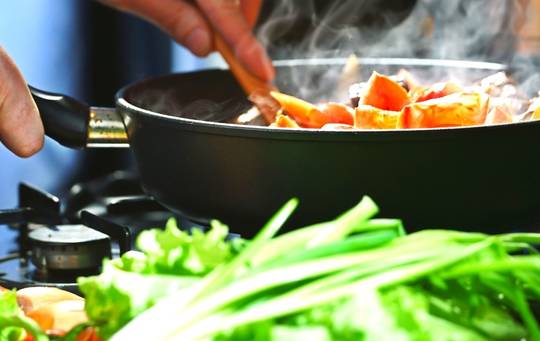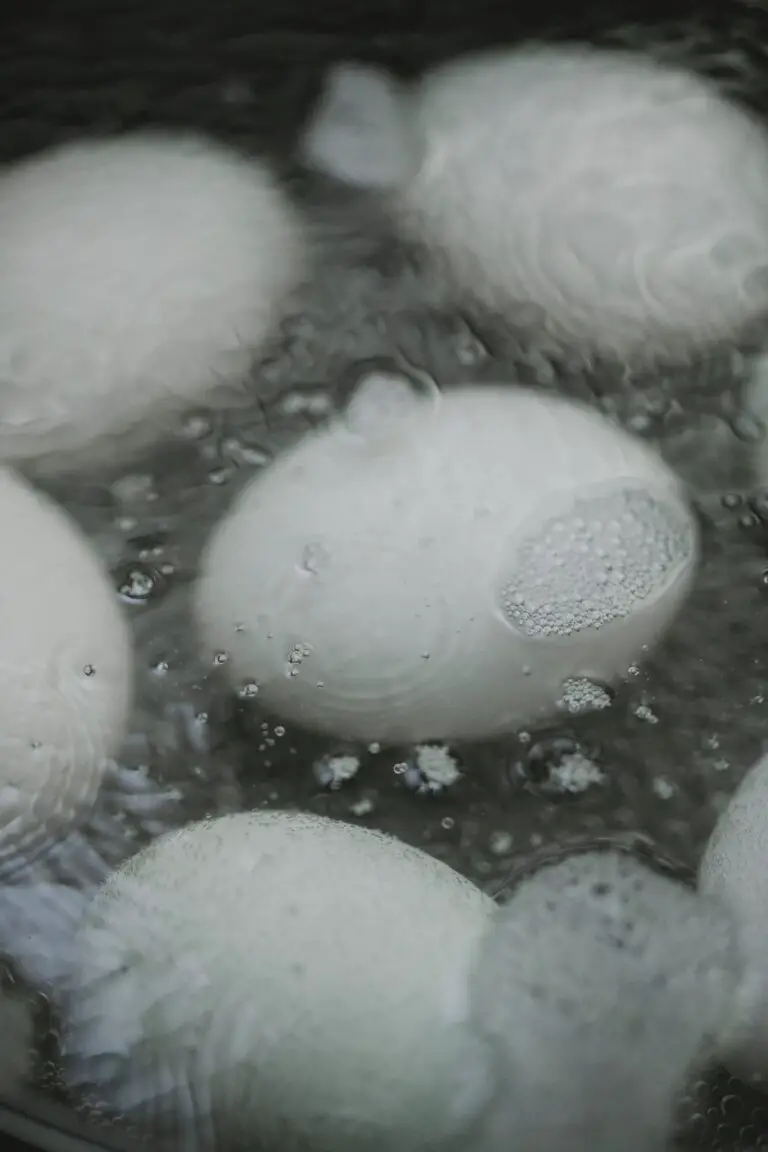Eggs are a versatile ingredient that can be used in countless dishes, from breakfast classics like omelets and scrambled eggs to baked goods and desserts. But what do you do when you find yourself with a carton of frozen eggs? Is it even possible to cook them successfully?
How to Cook Frozen Eggs? To cook frozen eggs, begin by thawing them in the refrigerator for 12-24 hours or in cold water for quicker thawing. Once thawed, you can use them for various dishes such as scrambled eggs, omelets, or baking, following your preferred recipes. Remember not to refreeze eggs after thawing for the best results.

How to Cook Frozen Eggs
Cooking frozen eggs starts with the essential step of thawing them properly. You can do this by transferring the frozen eggs to the refrigerator for 12-24 hours for a slow thaw, or use the cold-water method by sealing them in a plastic bag and submerging them in cold water, changing the water every 30 minutes for quicker thawing. Once thawed, you can use these eggs in various dishes such as scrambled eggs, omelets, baking, or hard-boiling, following your preferred recipes. Keep in mind not to refreeze eggs after thawing to maintain their texture and flavor. Thawed frozen eggs can be a versatile ingredient, ensuring you can enjoy egg-based meals even when fresh eggs are not readily available.
Why Would You Have Frozen Eggs?
Before we delve into the cooking process, it’s important to understand why you might have frozen eggs in the first place. There are a few common scenarios where freezing eggs becomes necessary:
Long-Term Storage
If you have a surplus of eggs and are concerned about them going bad before you can use them, freezing is a viable option. Properly stored, frozen eggs can last for several months, preserving their freshness and flavor.
Seasonal Egg Production
If you raise chickens or have access to fresh eggs during certain times of the year, you may want to freeze some for use during the off-season. This allows you to enjoy farm-fresh eggs year-round.
Preventing Waste
Sometimes, you may come across a great deal on eggs at your local grocery store and want to stock up. Freezing them can prevent waste and save you money in the long run.
Now that we’ve established the reasons for freezing eggs, let’s move on to the crucial part: cooking them properly.
Preparing Frozen Eggs for Cooking
Cooking frozen eggs isn’t as straightforward as cracking them open and tossing them in a pan. There are specific steps you should follow to ensure the best results. Here’s what you need to do:
Thawing Frozen Eggs
The first step is to thaw your frozen eggs. There are two safe methods for thawing eggs:
1. Refrigerator Thawing
This method is the safest and easiest. Simply transfer the frozen eggs from the freezer to the refrigerator and allow them to thaw slowly. It may take 12-24 hours for them to fully thaw, so plan ahead.
2. Cold-Water Thawing
If you need to thaw eggs quickly, you can use the cold-water method. Place the frozen eggs in a sealed plastic bag and submerge them in cold water. Change the water every 30 minutes to ensure it stays cold. Eggs thawed using this method should be used immediately.
Inspecting Thawed Eggs
Once your eggs are thawed, it’s essential to inspect them for any signs of spoilage. Check for unusual odors or discoloration, as these can be indicators that the eggs have gone bad during freezing or thawing. If everything appears normal, you’re ready to cook.
Cooking Methods for Frozen Eggs
Now that your frozen eggs are thawed and inspected, it’s time to cook them. Here are several methods you can use, depending on your preference and the dish you want to prepare:
Scrambled Eggs
Scrambled eggs are a breakfast staple, and you can make them with frozen eggs just as easily as with fresh ones. Follow these steps:
- Crack the thawed eggs into a bowl and beat them well.
- Heat a non-stick skillet over medium-low heat and add a small amount of butter or cooking oil.
- Pour the beaten eggs into the skillet and cook, stirring gently, until they reach your desired level of doneness.
Omelets
Omelets are a great way to use frozen eggs for a hearty breakfast or brunch. Here’s how to do it:
- Beat the thawed eggs in a bowl and season with salt and pepper.
- Heat a non-stick skillet over medium heat and add a small amount of butter or oil.
- Pour the beaten eggs into the skillet and let them cook without stirring until they start to set.
- Add your choice of fillings (cheese, vegetables, meats) to one half of the omelet.
- Flip the other half of the omelet over the fillings, creating a half-moon shape. Cook for a few more minutes until the center is fully set.
Baking and Cooking
Frozen eggs can also be used for baking and cooking in various dishes like quiches, frittatas, and casseroles. To use them in recipes, simply thaw the eggs as described earlier and use them according to the recipe’s instructions.
Hard-Boiled Eggs
If you love hard-boiled eggs but only have frozen ones on hand, you can still enjoy them with a few adjustments:
- Thaw the eggs in the refrigerator or cold water, as previously mentioned.
- Place the thawed eggs in a pot of cold water and bring it to a boil.
- Once boiling, reduce the heat to a simmer and cook for 10-12 minutes.
- Remove the eggs from the pot and place them in an ice-water bath to stop the cooking process.
- Peel and enjoy your hard-boiled eggs.
Tips for Cooking Frozen Eggs Successfully
Cooking frozen eggs can yield delicious results, but it’s essential to keep a few tips in mind to ensure the best outcome:
Properly Label and Date
When freezing eggs, always label the container with the date of freezing. This helps you keep track of their freshness and ensures you use the oldest eggs first.
Use an Airtight Container
To prevent freezer burn and maintain the quality of your frozen eggs, store them in an airtight container or a vacuum-sealed bag.
Avoid Re-Freezing
Once eggs are thawed, it’s not advisable to refreeze them. This can lead to changes in texture and flavor.
Season Eggs Before Cooking
Seasoning eggs before cooking, whether for scrambled eggs, omelets, or other dishes, enhances their flavor. Use salt, pepper, and other seasonings according to your taste.
Experiment with Recipes
Don’t be afraid to get creative with your frozen eggs. Experiment with different recipes and flavor combinations to discover new favorite dishes.
Conclusion
Cooking frozen eggs is a handy skill to have, especially when you want to make the most of your eggs and prevent waste. Whether you’re craving a simple scramble or an elegant omelet, with the right thawing and cooking techniques, you can enjoy delicious egg-based dishes year-round. Remember to follow the tips mentioned in this article to ensure the best results, and soon you’ll be cooking frozen eggs like a pro. So, the next time you find yourself with a carton of frozen eggs, you’ll know exactly what to do – whip up a fantastic meal!







